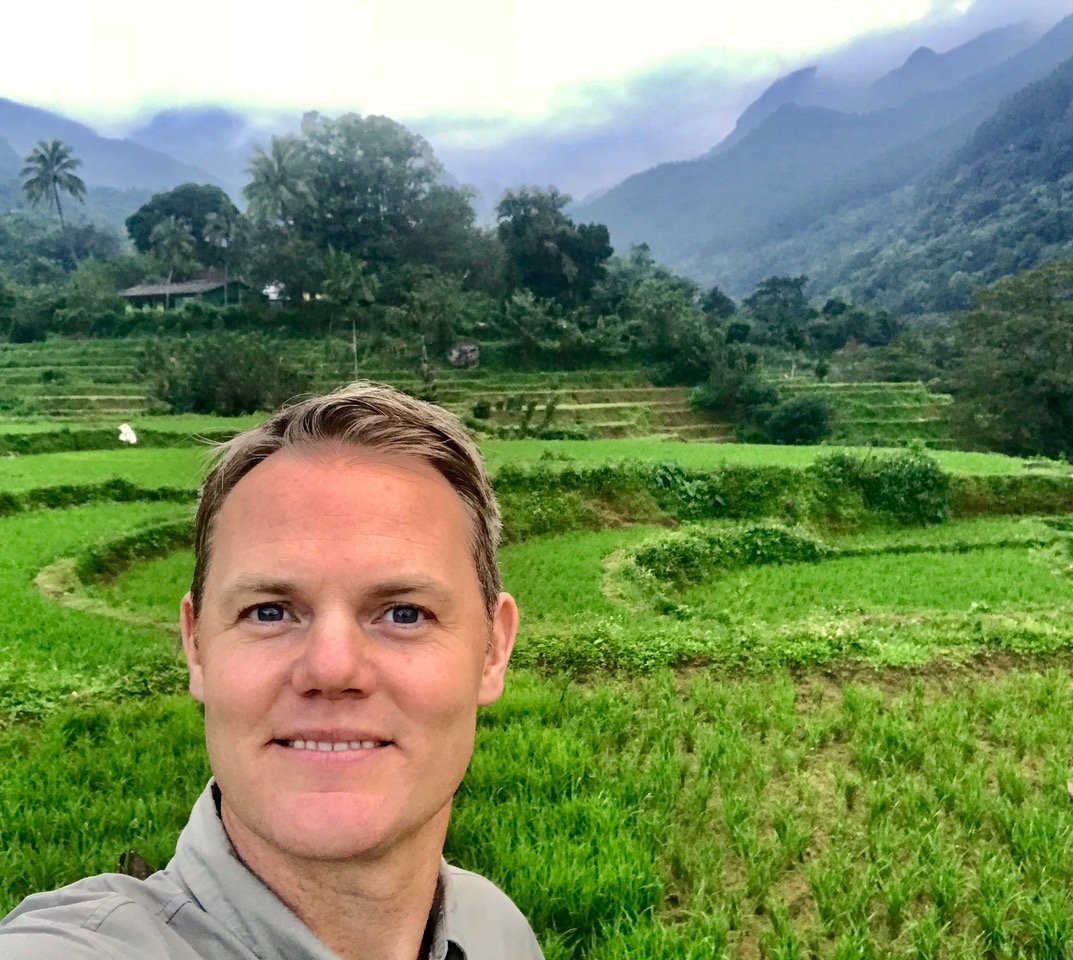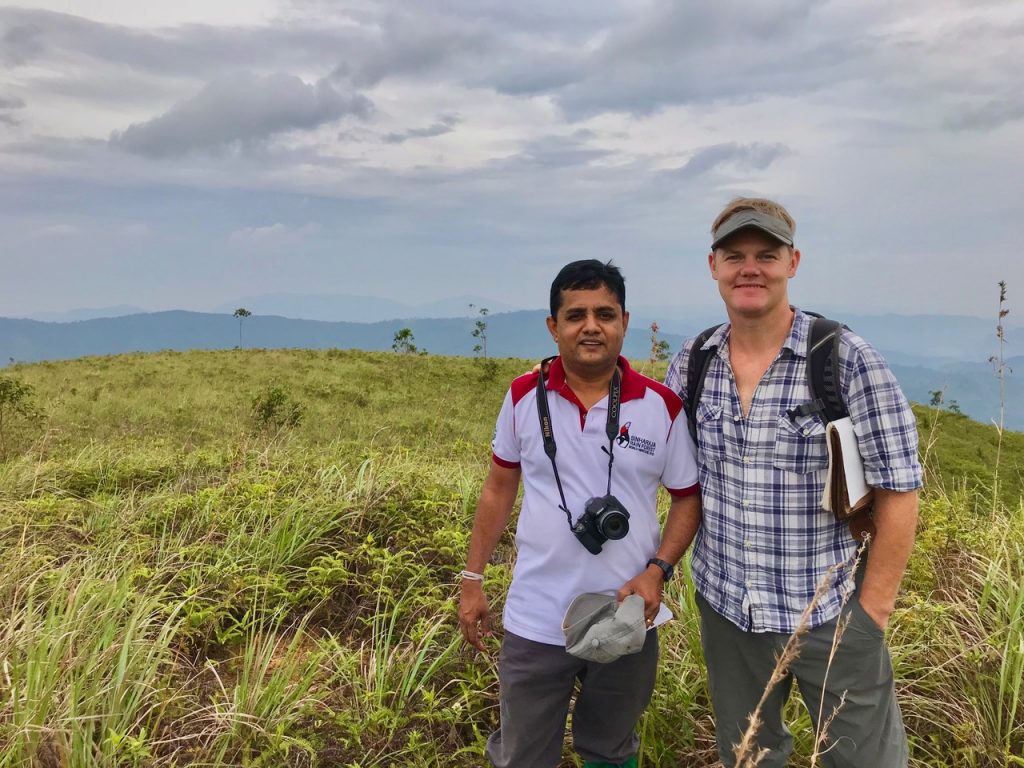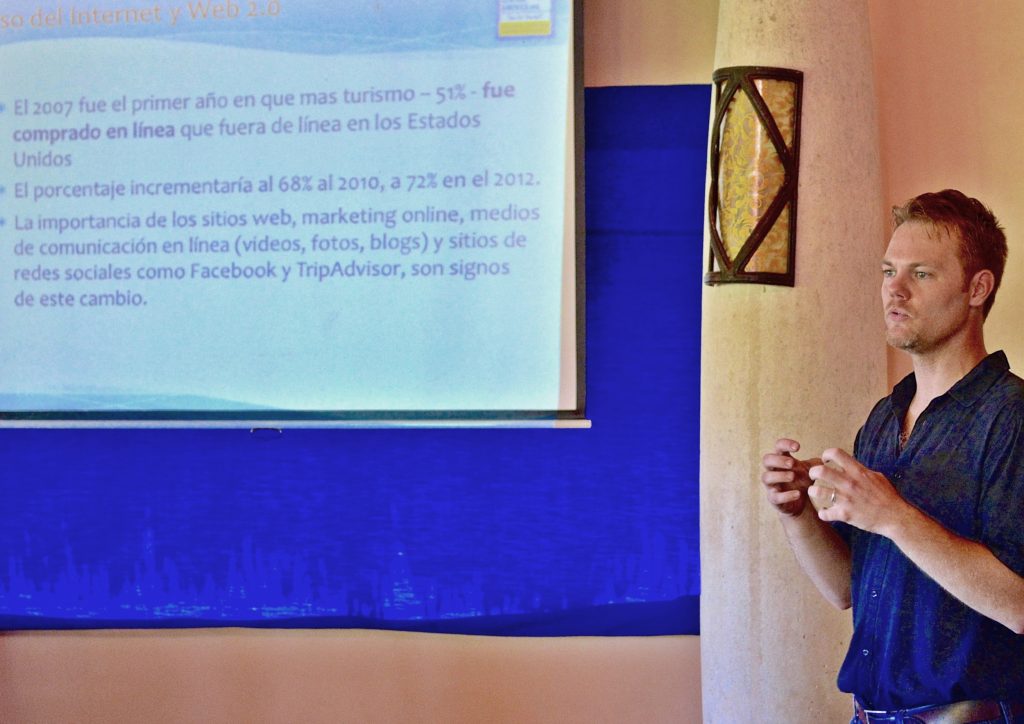George Washington University’s course on Tourism Product Development
Meet Matthew Humke, an ecotourism consultant who will be teaching the new Tourism Product Development module of George Washington University‘s Sustainable Tourism Destination Management Certificate Program this fall.
Matt will be teaching the online class Tourism Product Development October 8-14. Learn more or register. Use code “TM50” for an exclusive $50 discount.
Matthew has worked for 20 years in Latin America, Africa and Asia developing sustainable tourism as a tool for economic development and biodiversity conservation. The tourism enterprises Matthew has helped to establish have generated more than $5 million for local economies and his work has resulted in a number of the industry’s top honors, including a World Travel & Tourism Council “Tourism for Tomorrow” award.
In this Q&A, Matthew shares more about his tourism background and the Product Development course he’ll be teaching.

How did you get into sustainable tourism?
I was raised in a family of conservationists. The turning point was a trip to Costa Rica when I was in university and I saw that they were using tourism for sustainable development. They were talking about conservation as a political and economic challenge. I loved conservation and travel, so I saw myself in the combination of these two worlds.
Now, I specialize in tourism assessment and planning, business planning, product development, eco-lodge planning and development, training program design, tourism operations and management, sales and marketing, destination management and project management.
How exactly are you involved in the industry now?
I started as a ecotourism consultant for the White Mountain Apache Tribe in Arizona, worked for eight years at Rare, a nonprofit conservation agency and held the position of Director of Enterprise Development at Solimar International, a small sustainable tourism and marketing firm.

In 2014, I started my ecotourism consulting business and in 2015, I founded Trek Guatemala – the country’s first and only high-end trekking company that connects the country’s two most beautiful destinations: Antigua and Lake Atitlán. The treks feature comfortable safari-style tent camps, living cultural exchange with rural Mayan communities and majestic landscapes that include active volcanoes, cloud forest and coffee farms.
Does conservation shape your approach to product development and destination management?
It does, depending on the context I am in.
We see the potential of tourism as a way to engage communities and create local benefits.
Tourism is one of the few opportunities to totally change the paradigm in protected areas as communities usually rely on fishing, farming and unsustainable agriculture.
When you are looking at product development in protected areas, you are looking at tourism around natural resources in those protected areas and observing the wildlife. It realigns the interests of protected area managers and communities when you focus on nature as a tourism product.
Product development seems to be often overlooked in destination management and tourism, why?
Too often destination and tourism managers focus on the supply side of the situation and don’t spend enough time on market demand. That is one commonality that I have seen in most places I have worked in – just having good ties with the private sector and the market trends.

We, as consultants, have the time and the money to invest in product development. The private sector doesn’t always have time to do that. But partnering with the private sector is a good entry point for product development.
I see the private sector as the bridge between the destination and the products we are developing and the markets we are trying to reach.
I do work a lot with emerging tourism markets. Often people don’t know how to develop products, and they don’t always know what the market wants to consume. A lot of time is spent on the planning and analysis side of destination management. They don’t spend enough time on the nuts and bolts of product development.
The places we work in don’t have enough training in product development. The big organizations working in tourism often lack the applied tools to train the stakeholders. They lack the experience or the tools to actually build capacity particularly with marginalized communities or isolated stakeholder groups. It takes a unique customized approach to be effective in this area.
How does GWU’s Sustainable Tourism Destination Management Certificate Program fit in?
The certificate program attempts to address some of these unique challenges on developing products in emerging markets with the types of stakeholders we often work with. Within that supply side approach, I point out the importance of working with the private sector. They are a really vital partner.

What demand-side tourism trends have you seen?
The rise of experiential tourism is a focus for products, and I try to stress this within the certificate course. People are looking for authentic, experiential tourism products. They want to get off the beaten path and experience cultures and lifestyles in their natural environment.
The focus is shifting away from museums and zoos to tasting, touching and feeling cultures and lifestyles.
People just want to take advantage of their limited vacation time to have experiences that are really immersive. The world’s population is shifting to crowded metropolis and urban areas, which increases the need to connect with nature.
Healthy lifestyles are becoming more important.
People want to experience the food, the music, the lifestyles in a less packaged and polished way.

What are the building blocks of product development?
Understanding the connectivity of your destinations and other products is essential. How does your product fit into the larger picture? You need to define your market segments very clearly.
Who you are targeting impacts how you shape the product and what sales channels you should use.
We are really drilling down to as much specific as you can. You have so many competing destinations and you have to find out what makes yours unique. We focus on putting together unique value proposition. I am working with a park that has the highest concentration of Asian elephants and we are focusing on selling that.
Understanding what is driving people to pick your destination is crucial.
If you are lucky, destinations might be considering what makes their product strong, but they are not comparing their product at a national or regional level.
Thank you for your insights, Matt!
Matt will be teaching the online class Tourism Product Development October 8-14. Learn more or register. Use code “TM50” for an exclusive $50 discount.
Learn more about the Professional Certificate in Sustainable Tourism Destination Management and follow the International Institute of Tourism Studies at GWU on Travel Massive.
👋 This article is archived. Take a look at our new website.
